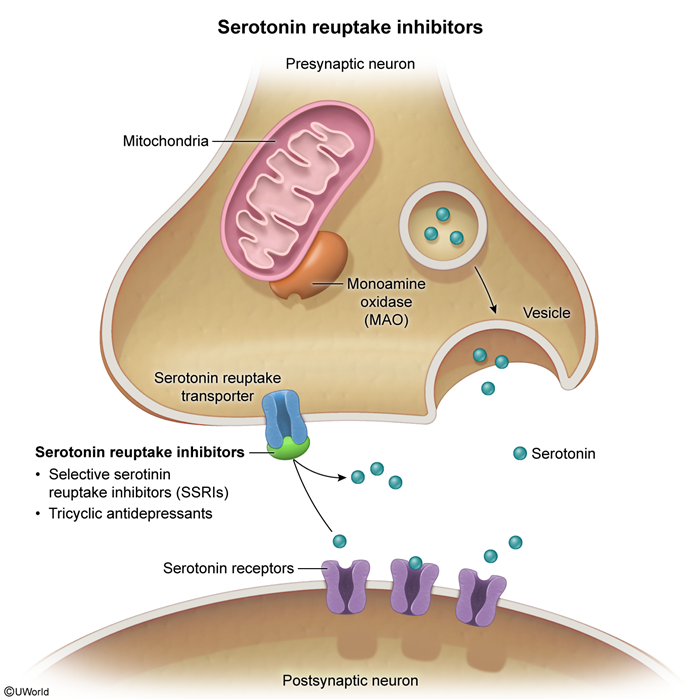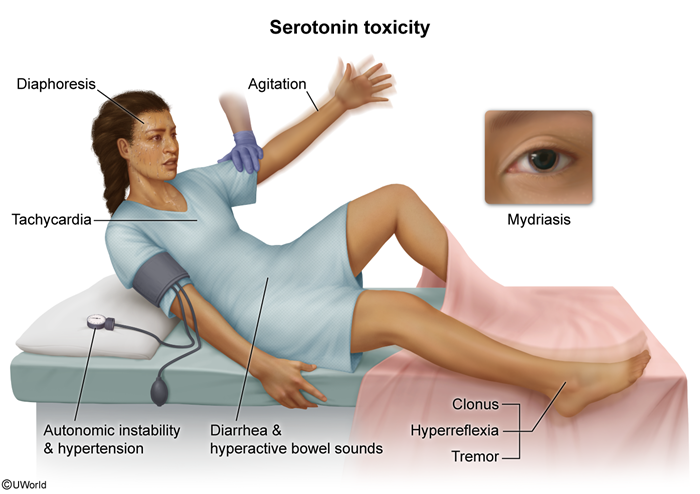Serotonin Toxicity
Article Sections
Introduction
Serotonin toxicity is a potentially life-threatening condition caused by excess serotonergic activity within the CNS. It typically results from combining medications that increase serotonin levels but may also occur due to intentional or accidental overdose. Overstimulation of serotonin receptors causes a characteristic clinical triad of mental status changes, autonomic instability, and neuromuscular excitability.
Pathogenesis and risk factors
Serotonin is a neurotransmitter that regulates various functions within the CNS, including memory, mood, attention, behavior, muscle tone, and body temperature. It also modulates gut motility and vasoconstriction in the peripheral nervous system. The pathology of serotonin toxicity involves excessive activation of serotonin receptors, primarily postsynaptic 5-HT2A receptors, resulting in dysregulation of the target organs (eg, brain, muscle).
Medications that augment serotonergic activity can cause serotonin toxicity, particularly if they are used together (
Continue Learning with UWorld
Get the full Serotonin Toxicity article plus rich visuals, real-world cases, and in-depth insights from medical experts, all available through the UWorld Medical Library.
Unlock Full AccessFigures

